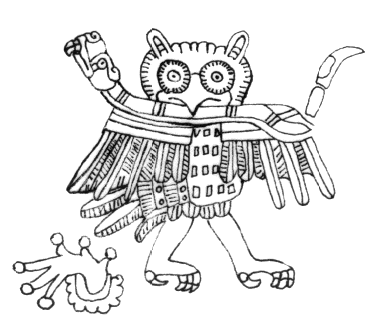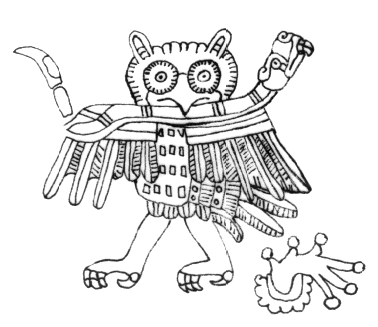社会的事実のつくられ方
How social facts are created
David Émile Durkheim, 1858-1917
社会的事実のつくられ方
How social facts are created
David Émile Durkheim, 1858-1917
池田光穂
社会学では、エスノメソドロジーや言説分析 (discourse analysis)という手法を用いて、我々が眼の前にしている現実や常識というものが、いかにして、言語を媒介にした《客観的事実》として構成されてい るのかに明らかにされている。
ここでは、佐竹文子・上野加代子・樫田美雄「児童虐 待のつくられかた:D.スミス「Kは精神病だ」の分析手法を基軸として」『徳島大学社会科学研究』第20号、Pp.19-36、ca.2006の結論部分 を参考にして、我々が、文書によって書かれたものを、どのようにして既成の《客観的事実》として受け入れてゆくのかについて解説してみよう。
1)あることが報告される前に、「これは〜について 書かれたものである」「これは〜についての事実の報告である」と、読み手に伝えられる。これは、事前予知の未来に対する効果という側面である。
2)目撃者などの、その事実を確証づける他の証拠、 ないしは、そのようなものが付加——文字通り事実に対する「負荷」でもある——されてゆく構図がある。傍証集積の傾向である。
3)筆者たちのいう「中立性のレトリック」。これ は、対象となる当事者——論文は事例の母親像——を、他の事例と比較対照することで、その対象が価値付けされるようになることに関連している。重要なポイ ントは、その価値付けの手続きにはバイアスがかかっていないことが、比較対照という手法のなかでマスクされてしまう。そのような位置づけ作業は、中立かつ 公平に行われたかの心証を与えてしまう。客観化の修辞と 言い換えることができる。
4)「防止可能レトリック」:これは、価値付け行為 に伴うが、事例が「問題」を扱う際に、それが人びとに大きな道徳的情動を引き起こす場合、どうして、それを防ぐことができなかったのか?どこかに防げたの ではないか、という《歴史的に遡及された過去の事実の現在にいたる経路》に対する希望的変更を投影するようになる。この投影は《取り戻せないものを取り戻 す》という欲望に他ならないが、そのような欲望を合理化するものが「防止可能レトリック」だと言える。過去に介入し現在を変えたい欲望の存在である。
5)異なる可能性として、現実を理解する余地の存在。社会的事実 は、そのことに深く関われば関わるほど、複雑な機微について知ることになり、固定された常識で安心することを許さなくなる。つまり、物事についての複数の 解釈を余地を残して理解しようとする態度である。
この論文は、児童虐待の母親のケースの分析である が、《社会的事実のつくられ方》として、読み取ることが可能な秀逸な論文でもある。筆者たちの鋭い分析に対して、私の説明は屋上屋を重ねることになるの で、是非とも原文を取り寄せて、各人が勉強をしてほしい。
| In sociology, social facts
are values, cultural norms, and social structures that transcend the
individual and can exercise social control. The French sociologist
Émile Durkheim defined the term, and argued that the discipline of
sociology should be understood as the empirical study of social facts.
For Durkheim, social facts "consist of manners of acting, thinking and
feeling external to the individual, which are invested with a coercive
power by virtue of which they exercise control over him."[1] |
社会学において社会的事実とは、個人を超越し、社会的統制を行使しうる
価値観、文化的規範、社会構造のことである。フランスの社会学者エミール・デュルケームはこの用語を定義し、社会学という学問分野は社会的事実の実証的研
究として理解されるべきであると主張した。デュルケムにとって、社会的事実とは「個人の外部にある行動、思考、感情の作法からなり、それらは個人を支配す
る強制力をもっている」[1]。 |
| Durkheim's social fact In The Rules of Sociological Method Durkheim laid out a theory of sociology as "the science of social facts". He considered social facts to "consist of representations and actions" which meant that "they cannot be confused with organic phenomena, nor with physical phenomena, which have no existence save in and through the individual consciousness."[1] Durkheim says that a social fact is a thing that many people do very similarly because the socialized community that they belong to has influenced them to do these things.[2] Durkheim defined the social fact this way: "A social fact is any way of acting, whether fixed or not, capable of exerting over the individual an external constraint; or: which is general over the whole of a given society whilst having an existence of its own, independent of its individual manifestations".[1] He viewed it as a concrete idea that affected a person's everyday life.[3] Durkheim's examples of social facts included social institutions such as kinship and marriage, currency, language, religion, political organization, and all societal institutions we must account for in everyday interactions with other members of our societies. Deviating from the norms of such institutions makes the individual unacceptable or misfit in the group. Among the most noted of Durkheim's work was his discovery of the "social fact" of suicide rates. By carefully examining police suicide statistics in different districts, Durkheim demonstrated that the suicide rate of Catholic communities is lower than that of Protestant communities. He ascribed this to a social (as opposed to individual) cause.[4] This was considered groundbreaking and remains influential. Durkheim's discovery of social facts was significant because it promised to make it possible to study the behaviour of entire societies, rather than just of particular individuals. Durkheim points to individual actions as instances or representations of different types of actions in society.[5] Some contemporary, interpretivist, sociologists like Max Atkinson and Jack Douglas refer to Durkheim's studies for two quite different purposes, however: Durkheim's studies are graphic demonstrations of how careful the social researcher must be to ensure that data gathered for analysis are accurate. Durkheim's reported suicide rates were, it is now clear, largely an artifact of the way particular deaths were classified as "suicide" or "non-suicide" by different communities. What he actually discovered was not different suicide rates at all—but different ways of thinking about suicide. His studies are also an entry point into the study of social meaning—and the way that apparently identical individual acts often cannot be classified empirically. Social acts (even such an apparently private and individual act as suicide), in this modern view, are always seen (and classified) by social actors. Discovering the social facts about such acts, it follows, is generally neither possible nor desirable—but discovering the way individuals perceive and classify particular acts is what offers insight. A further complication is introduced by asking about the status of our "discovery" of these perceptions and classifications. After all, don't such "discoveries" also reflect socially embedded practices of classification? But if the alleged discoveries of perceptions of social facts aren't therefore dubious, it is hard to see why the original claims about the social facts are.[6][7] |
デュルケムの社会的事実 デュルケームは『社会学的方法の規則』の中で、「社会的事実の科学」としての社会学の理論を打ち出した。彼は社会的事実を「表象と行為からなる」と考え、それは「有機的現象と混同することはできないし、物理的現象とも混同することはできない。 デュルケムは社会的事実をこのように定義した: 「社会的事実とは、固定的であろうとなかろうと、個人に対して外的制約を及ぼすことのできるあらゆる行動様式である; あるいは 社会的事実とは、固定的であるか否かを問わず、個人に対して外的制約を及ぼすことのできるあらゆる作用のあり方である。 彼はそれを、人の日常生活に影響を与える具体的な考えとして捉えていた[3]。 デュルケムの社会的事実の例には、親族関係や結婚などの社会制度、通貨、言語、宗教、政治組織、そして私たちが社会の他のメンバーとの日常的な相互作用に おいて説明しなければならないすべての社会制度が含まれていた。このような制度の規範から逸脱することは、その個人を集団の中で受け入れがたい存在、ある いは不適合な存在にすることになる。 デュルケムの研究で最も注目されるのは、自殺率という「社会的事実」を発見したことである。さまざまな地区における警察の自殺統計を注意深く調査すること によって、デュルケムはカトリックの共同体の自殺率がプロテスタントの共同体よりも低いことを実証した。これは画期的なことであり、今でも影響力がある。 デュルケームによる社会的事実の発見は、特定の個人だけでなく、社会全体の行動を研究することを可能にすることを約束した点で重要であった。しかし、マッ クス・アトキンソンやジャック・ダグラスのような現代の解釈主義的な社会学者の中には、デュルケムの研究を2つの全く異なる目的のために参照している者も いる: デュルケムの研究は、分析のために収集されたデータが正確であることを保証するために、社会調査者がいかに注意深くなければならないかを生々しく示してい る。デュルケムが報告した自殺率は、コミュニティによって特定の死が「自殺」あるいは「自殺でない」と分類されたことによる人工的なものであったことが、 今では明らかになっている。彼が実際に発見したのは、自殺率の違いではなく、自殺についての考え方の違いだった。 彼の研究はまた、社会的意味の研究への入り口であり、一見同じように見える個人の行為がしばしば経験的に分類できないことを示すものでもある。社会的行為 (自殺のような一見私的で個人的な行為でさえも)は、この現代的な見方では、常に社会的行為者によって見られている(そして分類されている)。そのような 行為に関する社会的事実を発見することは、一般的には可能でも望ましいことでもないが、個人が特定の行為をどのように認識し分類しているかを発見すること こそが、洞察をもたらすということになる。こうした認識や分類の「発見」の位置づけを問うことで、さらなる複雑さがもたらされる。結局のところ、このよう な「発見」は、社会的に埋め込まれた分類の慣行を反映したものでもあるのではないだろうか?しかし、もし社会的事実の認識に関する発見が疑わしいものでな いとすれば、社会的事実に関する本来の主張がなぜ疑わしいものであるのか、その理由を理解することは難しい[6][7]。 |
| Mauss's total social fact For Marcel Mauss (Durkheim's nephew and sometime collaborator) a total social fact (French fait social total) is "an activity that has implications throughout society, in the economic, legal, political, and religious spheres".[8] Diverse strands of social and psychological life are woven together through what he came to call total social facts. A total social fact informs and organizes seemingly quite distinct practices and institutions.[9] Marcel Mauss popularized the term in his book, The Gift: These phenomena are at once legal, economic, religious, aesthetic, morphological and so on. They are legal in that they concern individual and collective rights, organized and diffuse morality; they may be entirely obligatory, or subject simply to praise or disapproval. They are at once political and domestic, being of interest both to classes and to clans and families. They are religious; they concern true religion, animism, magic and diffuse religious mentality. They are economic, for the notions of value, utility, interest, luxury, wealth, acquisition, accumulation, consumption and liberal and sumptuous expenditure are all present...[10] |
モースの社会的全事実 マルセル・モース(デュルケムの甥であり、共同研究者でもあった)にとって、総合的社会的事実(フランス語のfait social total)とは、「経済的、法的、政治的、宗教的な領域において、社会全体に影響を及ぼす活動」である[8]。マルセル・モースは著書『贈与』の中でこ の言葉を広めた: これらの現象は同時に、法的、経済的、宗教的、美的、形態学的などである。これらの現象は法律的であり、経済的であり、宗教的であり、美的であり、形態学 的であり、個人と集団の権利、組織化された道徳と拡散した道徳に関わるものである。政治的なものであると同時に家庭的なものでもあり、階級にとっても、一 族や家族にとっても興味深いものである。宗教的であり、真の宗教、アニミズム、魔術、拡散した宗教的精神に関わる。それらは経済的なものであり、価値、効 用、利子、贅沢、富、獲得、蓄積、消費、自由で豪華な支出といった概念がすべて存在するからである...[10]。 |
| Dominant ideology Sociological positivism |
支配的イデオロギー 社会学的実証主義 |
| https://en.wikipedia.org/wiki/Social_fact |
リンク
文献
Do not copy and paste, but you might [re]think this message for all undergraduate students!!!

